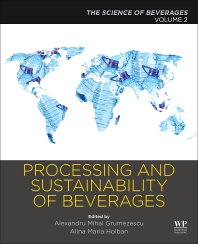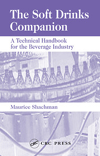Timing is everything
Sidel helps reduce changeover times for Arcus








Arcus AS, a supplier and producer of wines and spirits based in Gjelleråsen, Norway, recently turned to Hünenberg, Switzerland-based Sidel when it relocated from its traditional production and distribution facility in the center of Oslo to a new, purpose-built plant 16 kilometers outside the capital. The former site was old, inflexible and expensive. Therefore, the company — like those in many other European regions — decided it was time to move production out of the city. They decided to migrate to Gjelleråsen, where the filling hall alone would have to accommodate seven production lines with an annual capacity of more than 21 million liters. The new premises, however, are just more than half the size of the original site, so the new production facility would need an intelligent and well-adapted layout to ensure optimum efficiency and productivity.
Preserving Norway’s cultural heritage
Arcus has more than 80 years of experience in producing and supplying spirits and wines and is the name behind Norwegian brands such as Braasad Cognac, Hammer Gin and Upper Ten Whisky as well as international brands such as Linie Aquavit and Vikingfjord Vodka. A subsidiary of Arcus-Gruppen AS, Arcus is the only distiller in Norway, producing all the spirits made within the country, including vodka, gin, liqueur, bitters and aquavit, from old recipes and formulas, some dating as far back as the early 19th century. Regarded as the national spirit of Norway, aquavit has a long tradition within Scandinavia but has limited availability elsewhere. The Norwegian version is a neutral spirit made from potatoes aromatized with caraway or dill and matured in old sherry casks in a similar process to that of making cognac and whiskey. Today, Arcus still produces the various Norwegian aquavits from recipes acquired from the private distilleries in the years following the State Wine Monopoly in 1922, and dominated production in 2011 with a 90 percent share.
Through its subsidiary Vinordia, Arcus also now supplies wine from many well-known international producers, such as Bodegas Julian Chivite, La Rioja Alta, Casa Girelli and Champagne Ruinart, and markets a variety of its own wine brands including Arrow, La Vida and Collection Frithjof Nicolaysen.
State-controlled retail of alcohol
Government attitudes toward alcohol in Norway were among the most restrictive in Europe in the 20th century after liberal legislation and advances in production techniques encouraged widespread misuse of spirits in the latter part of the previous century. Even today, the sale of beverages with an alcohol content of more than 4.75 percent is strictly controlled. The State Wine Monopoly (“Vinmonopolet”) is a government-owned retailer. It is the only body allowed to sell such drinks as part of a deliberate policy to minimize alcohol-related health and social problems within the country. Nevertheless, consumption has been on the increase, particularly that of wine as more Norwegians adopt a more European lifestyle that includes drinking alcohol with their dinner. As the country’s only importer and producer, Arcus has had to meet the increase in demand, and the company’s relocation was, in part, a response to the need for greater production capacity.
Demanding perfection on a tight schedule
The move to new premises brought with it a demanding set of criteria from Arcus. The company’s intention involved much more than simple relocation of its production lines. Arcus was looking for an increase in efficiency and productivity; however, the company also wanted the new facility to be the most advanced and sophisticated processing plant for wines and spirits in northern Europe. Working on a tight schedule, Arcus demanded maximum accuracy, minimum loss, lowest possible cost and full compliance with the demanding time frame.
Lars-Erik Gulling, production director with Arcus, said: “Flexibility really mattered in this project. One of our main challenges was that the lines needed to be specialized in running up to 25 different types of bottles yet cause a minimum of changeover loss.”
The relocation involved the integration of three existing production lines for wine and spirit bottles: one producing eight different formats from 35 cl to 75 cl, another producing 20 formats from 50 cl to 175 cl, and one producing 15 formats from 35 cl to 175 cl. This part of the project involved the dismantling of various types of equipment from the Oslo plant — including, among other things, three wrap-around case packers, five labellers, one filling block and one empty bottle depalletizer — and its reinstallation at the new site.
Arcus decided to entrust this complicated production line project to a single supplier — a partner with proven integration capability including experience with engineering, conveyors, palletizers and depalletizers, bottle washers, pasteurizers and other tunnel machines. Arcus wanted to work with a company that could manage the whole project, offer a complete turnkey service from dismantling to installation, and deliver on schedule and within budget. Gulling had worked with Sidel in his roles with other beverage manufacturers before joining Arcus and therefore had an understanding of and direct experience with Sidel’s capabilities, which proved an important factor in Arcus’ decision to appoint Sidel as its integration partner. The relocation process began in early 2012.
Project management with an open approach
The other factors that contributed to Sidel’s success in securing the project were the company’s open attitude and its ability to listen to Arcus’ specifications, requests and concerns. As a result of this, Sidel also was able to offer innovative thinking and valuable advice, especially in the area of filling technology. Sidel even brought in specialists to examine the many different aspects of the project. But there was more to it than that, as Gulling explained: “Sidel was the only partner willing to bring in equipment from outside the company to meet the challenge. Hence they were the only company able to fulfill the specifications and meet the need for fast changeovers.”
By the end of March 2012, the first of the three production lines was up and running ahead of schedule. For filling glass bottles with vodka, the line included several third-party components such as a brand-new filler, two existing labellers and a relocated wrap-around packer, all integrating seamlessly with Sidel’s own depalletizing and conveying equipment. Several months later, after the completion of the machine installation and commissioning, software programming, line commissioning and operation and maintenance training, the remaining two lines also were completed and in full production on time.
The equipment supplied by Sidel for the existing three lines included two empty-bottle depalletizers, bottle conveyors, an automatic laning system for the two existing wrap-around case packers and Sidel’s accumulation system. The automatic laning is the exclusive system from Sidel that enables line operators to adjust side-guides automatically and contributes greatly in saving time during changeovers.
The AQ-file is a flexible and ergonomic system for use on bottling lines of speeds less than 30,000 bottles an hour that can be employed for a wide range of containers — particularly those of complex shapes unsuitable for mass accumulation.
Sidel’s specialists were able to be highly reactive throughout the whole project to solve any issues efficiently and achieve a significant boost in productivity.
Comprehensive solutions bring improved efficiencies
The new facility at Gjelleråsen now accommodates an array of activities. The project entailed the integration of its production lines and also the installation of a completely new processing line for spirits, an expanded bottling plant, innovative control systems and a new, compact warehouse for storing aquavit as it matures in the cask. To enhance its logistical capability at the new site, Arcus also required a dedicated goods-in reception area along with an administration building. A fully automated system of computer-controlled trucks moves the bottles and boxes of wine from the production line to the similarly automated pallet warehouse, which now is capable of storing more than 16,000 pallets.
“We are now able to achieve much greater efficiency and, most importantly, a 66-percent reduction in changeover time,” Gulling says. “We’re very grateful to Sidel and its dedicated personnel for making this project such a success.”
About Sidel
Sidel is a global provider of polyethylene terephthalate (PET) solutions for liquid packaging as well as a driving force for glass and can solutions. Headquartered in Hünenberg, Switzerland, it has production sites in 13 countries and 30,000 machines installed in more than 190 nations worldwide.
Looking for a reprint of this article?
From high-res PDFs to custom plaques, order your copy today!










